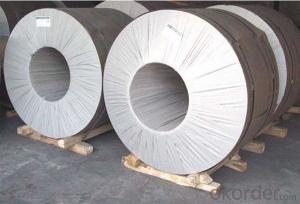Aluminum wire has become a staple in the construction industry, thanks to its versatility and numerous applications. From electrical wiring to structural support, aluminum’s lightweight and high strength make it a favorite among builders and engineers. Let’s dive into the world of aluminum wire and explore its most common uses in construction.
Lightweight and Strong: The Perfect Combination
Imagine a material that’s one-third the weight of copper but just as strong. That’s aluminum wire for you! Its lightweight nature makes it easier to handle and install, reducing the physical strain on workers and speeding up construction projects. Moreover, its strength ensures that it can withstand the rigors of construction without compromising on safety and durability.
Electrical Wiring
When it comes to electrical wiring, aluminum wire is a top choice due to its excellent conductivity and cost-effectiveness. It’s widely used in residential, commercial, and industrial settings for various electrical applications. The lower resistance of aluminum compared to copper means it can handle high electrical loads without overheating, making it perfect for power distribution and transmission lines.
Structural Support
Aluminum wire’s high strength-to-weight ratio also makes it ideal for structural support in construction. It’s often used in the form of cables and wires to reinforce concrete, providing additional stability and strength to buildings. This reinforcement helps in resisting the effects of earthquakes, hurricanes, and other natural disasters, ensuring the safety and integrity of the structure.
Roofing and Siding
In roofing and siding applications, aluminum wire plays a crucial role in securing panels and sheets. Its lightweight and corrosion-resistant properties make it a preferred choice for these applications. Aluminum wire is also easy to work with, allowing for quick and efficient installations, which is a significant advantage in large-scale construction projects.
Solar Energy Systems
With the growing focus on renewable energy, aluminum wire has found its place in solar energy systems. Its high conductivity and lightweight nature make it perfect for wiring solar panels and connecting them to the power grid. The durability of aluminum wire ensures that these systems can withstand harsh weather conditions and last for a long time.
Elevators and Escalators
In the world of vertical transportation, aluminum wire is indispensable. It’s used in the manufacturing of elevator cables and escalator chains, thanks to its strength and flexibility. The lightweight nature of aluminum wire reduces the load on these systems, making them more energy-efficient and reducing the overall wear and tear.
Temporary Construction Support
During the construction process, temporary support structures are often required. Aluminum wire is used to create these supports, providing a strong and stable foundation for ongoing work. Its ease of installation and removal makes it an ideal material for temporary applications.
Aesthetic Appeal
Beyond its practical uses, aluminum wire also adds an aesthetic appeal to construction projects. Its shiny appearance and flexibility make it suitable for decorative purposes, such as in ornamental fencing, trellises, and other design elements.
Safety and Sustainability
Aluminum wire is not only about functionality; it’s also about safety and sustainability. Being a non-ferrous metal, it doesn’t rust or corrode, ensuring a longer lifespan for constructions. Additionally, aluminum is 100% recyclable, contributing to a greener and more sustainable construction industry.
The Future of Aluminum Wire in Construction
As construction techniques evolve and new materials are developed, aluminum wire continues to be a frontrunner in the industry. Its adaptability and endless applications make it a material of choice for builders and engineers alike. The future looks bright for aluminum wire, with more innovative uses being discovered and implemented in construction projects worldwide.
In conclusion, aluminum wire’s role in construction is multifaceted, ranging from electrical wiring to structural support and beyond. Its lightweight, strength, and versatility make it an indispensable material in the industry. As we continue to push the boundaries of construction and design, aluminum wire will undoubtedly remain a key player in shaping the built environment of tomorrow.

